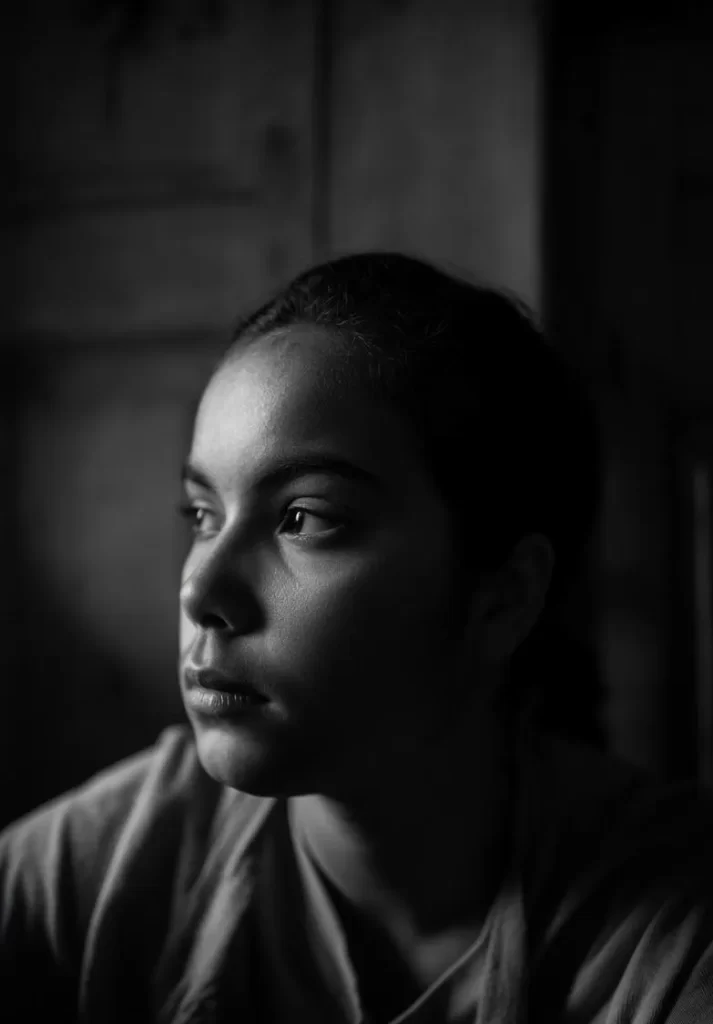- Home
- Sexual Abuse
- Foster Care Abuse
Foster Care Abuse
- February 13, 2026
-
Sarah Miller
- Fact Checked By Our Attorneys
Foster care abuse occurs when children experience sexual abuse, physical, emotional abuse, or neglect while living with foster parents, caregivers, staff, or peers in foster homes, group homes, or other placements. Children separated from their families are especially vulnerable, relying on adults for safety, guidance, and support, which makes any betrayal particularly traumatic. Abuse in the foster care system can take many forms, from inappropriate touching or sexual exploitation to neglect, harsh discipline, or emotional manipulation.
Survivors and their guardians have the right to pursue civil claims to hold agencies, caregivers, and other responsible parties accountable contact Legal Claim Assistant for a free, confidential case review to see if you qualify and take the first step toward justice.
No Win, No Fee. Let the Best Sex Abuse Attorneys Fight for your Compensation!
Key Takeaways:
Foster care abuse includes sexual, physical, and emotional abuse or neglect by parents, caregivers, staff, or peers in foster homes, group homes, or residential facilities.
Many Children in foster care are especially vulnerable, and abuse can cause long-lasting trauma, mental health struggles, behavioral problems, and physical health problems.
Abuse often occurs in settings where many children are placed for safety and care, including foster homes, kinship care, and out-of-state facilities, making the betrayal particularly harmful.
Legal options exist for survivors, including civil lawsuits against parents, placement agencies, and state or county child welfare departments. Free, confidential case reviews can help survivors and their families take the first step toward justice.
Find out your eligibility in 2 minutes
If your child has been a victim of sexual abuse, you are not alone. Many families face the same fear, pain, and search for justice. Our team can connect you with experienced child sexual abuse attorneys who understand these sensitive cases, protect your child’s rights, and guide your family through filing a legal claim for the compensation and accountability you deserve.
Begin your free and confidential case review today.

What Counts as Foster Care Abuse?
Foster care abuse includes sexual, physical, emotional abuse, or neglect experienced by children exiting foster care while in foster homes, group homes, or other placements. Understanding the different forms of abuse can help survivors and guardians recognize when a child’s safety or well-being has been compromised.
- Sexual Abuse and Exploitation: Any unwanted sexual contact, inappropriate touching, or sexual exploitation by parents, caregivers, staff, or peers. Even coercion or grooming behaviors fall under this category.
- Physical Abuse and Excessive Discipline: Hitting, shaking, burning, or any excessive disciplinary actions that cause injury, pain, or fear. Physical abuse may also include deprivation of food, water, or basic care.
- Emotional Abuse and Coercion: Threats, intimidation, verbal assaults, humiliation, or manipulation that damages a child’s emotional development or sense of safety.
- Neglect: Failure to provide proper supervision, medical care, safe housing, or necessary support for a child’s physical and mental well-being.
It is important to distinguish isolated incidents from systemic failures, such as inadequate licensing, insufficient oversight, or repeated prior complaints ignored by child welfare agencies to avoid future harm.
How Common Is Abuse in Foster Care?
Abuse in foster care is often underreported, as children may fear removal from their placement, retaliation from caregivers, or loss of contact with supportive adults. Abuse can occur across all types of placements, including:
- Family foster homes and kinship care
- Group homes facilities
- Out-of-state or specialized placements for vulnerable youth
Children in foster care are particularly at risk due to their separation from birth parents, dependency on caregivers, and the limited oversight from local and state child welfare agencies.
Many cases go unnoticed by agencies, which highlights the need for independent legal review, rather than relying solely on internal investigations by foster care or human services organizations.
Warning Signs of Sexual Abuse in Foster Care
Recognizing sexual abuse in foster care can be challenging, but understanding common signs can help caregivers, guardians, and social workers protect vulnerable children. Signs often fall into three categories:
- Behavioral: Sudden regression in development, frequent nightmares, sexualized behavior inappropriate for age, sudden aggression, withdrawal, or changes in social interactions.
- Physical: Unexplained injuries, bruises, sexually transmitted infections (STIs), pain or discomfort in private areas, or torn clothing.
- Environmental: Caregivers restricting communication with others, secrecy around certain adults, or coaching the child to hide abuse.
If you notice these signs in a child, it is crucial to take immediate action. For more detailed guidance, see Signs of Sexual Abuse in Foster Care and Signs of Sexual Abuse.

Who Can File a Foster Care Abuse Lawsuit? (Eligibility Checklist)
Both child survivors (through a guardian ad litem) and adults who experienced abuse as youth may be eligible to file a civil claim. Legal Claim Assistant uses clear criteria to help determine eligibility:
- Abuse occurred as a child: The abuse must have taken place while the survivor was in foster care.
- Skin-on-skin contact involved: Cases involving direct physical contact are prioritized.
- Abuser is known by name: Identifying the perpetrator is critical for building a viable claim.
- Abuse happened multiple times and a viable defendant remains: The responsible agency, contractor, or facility must still be operating.
- Currently ≤ 6 months before the state statute of limitations (SOL) deadline: Acting promptly ensures legal options remain open.
- No current legal representation: Legal Claim Assistant connects survivors with experienced attorneys.
Institutional negligence, such as missed warning signs, failure to supervise, or ignored prior complaints, can strengthen claims and expand potential defendants to include parents, foster care agencies, and child welfare agencies.
FREE!
Find out if you're eligible and may be eligible for compensation.
Get your Free Case Review and Maximize You Payout With the Help From Legal Claim Assistant.
Reporting Foster Care Abuse (What to Do Now)
If a child is being abused in foster care, taking prompt action is crucial to ensure their safety and preserve evidence. Immediate steps include moving the child to a safe environment, seeking a medical exam for any injuries or sexually transmitted infections, and documenting all relevant information, including dates, locations, and names of caregivers or witnesses.
Preserving texts, photos, messages, and other evidence can be vital for legal action. Abuse should be reported through mandated channels such as local law enforcement, Child Protective Services (CPS) or state hotlines, and licensing authorities overseeing foster care placements. While reporting is essential, it does not automatically create a civil claim.
Who May Be Liable for Child Maltreatment in Foster Care?
In foster care abuse cases, liability can extend beyond the individual perpetrator. Potential defendants include the abusive foster parent or caregiver, household members who enabled or failed to prevent abuse, and the placement or child-placing agency responsible for matching children with foster homes. Public entities such as state or county child welfare departments and contractors may also be held accountable for insufficient oversight.
Additionally, group homes facilities, along with their insurers, may face liability if abuse occurs on their premises. Legal claims often rely on theories such as negligent hiring or supervision, failure to remove an abusive caregiver, failure to investigate complaints, or lapses in licensing that put children at risk. Understanding the scope of potential liability is critical for survivors and guardians seeking justice.
For guidance on filing a claim and learning who may be held responsible, learn more about Sexual Abuse Lawsuit.
Compensation for Foster Care Abuse Survivors
Survivors of foster care abuse may be entitled to both economic and non-economic compensation. Economic damages can cover therapy, medical care, relocation support, and educational remediation for children whose development or schooling was disrupted by abuse.
Non-economic damages address the emotional and psychological impact, including pain and suffering, PTSD, loss of enjoyment of life, and long-term mental health challenges. In cases where agencies or parents engaged in egregious cover-ups or deliberate neglect, supreme court may award punitive damages to hold wrongdoers accountable and deter future misconduct.
Families and survivors can learn more about Compensation for Abuse in Foster Care.
“Silenced in the system, but the pain speaks louder — foster care abuse must be seen, heard, and stopped”
Statute of Limitations in Foster Care Cases
The statute of limitations (SOL) for child sexual abuse cases varies by state, and foster care claims often include special rules such as tolling or revival periods to account for the delayed reporting common among survivors. Because these deadlines are strict, acting promptly is critical waiting too long may permanently bar a survivor from filing a claim.
Legal Claim Assistant helps check state-specific deadlines and ensures survivors understand their rights before it is too late. Even if abuse occurred years ago, survivors may still have a viable path to justice under federal law or state-specific child welfare regulations.
Learn more about Child Sexual Abuse.
FREE!
Find out if you're eligible and may be eligible for compensation.
Get your Free Case Review and Maximize You Payout With the Help From Legal Claim Assistant.
How a Foster Care Abuse Attorney Builds Your Case
A foster care attorney works to gather and preserve all relevant evidence while protecting the survivor’s privacy. Key sources of evidence may include:
- Placement files and foster care records: Documentation from foster care agencies or child welfare departments.
- Licensing and inspection reports: Records showing oversight or violations by foster homes or group facilities.
- Hotline call logs and prior complaints: Reports of abuse that were previously filed.
- Personnel files: Backgrounds of parents, caregivers, or staff involved.
- Medical and other health evaluations: Physical exams, therapy records, or evaluations documenting trauma or injuries.
- Digital messages or correspondence: Emails, texts, or social media communication that supports the claim.
Attorneys also focus on preserving evidence and protecting the child’s anonymity whenever possible. For specialized legal and technical assistance, talk with a Foster Care Abuse Attorney today.
Step-by-Step: Filing a Foster Care Abuse Lawsuit
Filing a foster care abuse lawsuit can feel overwhelming but experienced attorneys guide survivors and guardians through each step with care and expertise. The process typically includes:
- Confidential intake and eligibility check: Determine if the child or adult survivor meets the criteria for a civil claim.
- Records requests and evidence preservation letters: Collect placement files, inspection reports, and prior complaints to support the case.
- Identify defendants and insurance coverage: Determine which foster parents, agencies, contractors, or state entities may be liable.
- File civil claim, discovery, settlement or trial: Submit the claim, gather additional evidence, and negotiate a settlement or pursue trial.
- Survivor-centered support throughout the process: Maintain trauma-informed guidance, ensuring the child’s well-being is prioritized.
Legal Claim Assistant positions itself as a trusted connector to vetted attorneys nationwide who are experienced in handling claims involving foster care agencies, public entities, and contractors.
Prevention and Accountability in Foster Care
Preventing abuse in foster care requires coordinated action from agencies, caregivers, and community partners.
What agencies must do
- Conduct thorough background checks and robust screening for foster parents, kinship caregivers, and staff to protect vulnerable children.
- Perform unannounced visits and inspections to ensure safe home environments and to prevent continued abuse.
- Provide comprehensive training to parents and staff on child safety, reporting obligations, and trauma-informed care.
- Maintain child-friendly reporting systems so foster children and youth residing in out-of-state facilities or group homes can safely disclose abuse.
- Carry out regular safety audits to identify gaps in supervision and prevent neglect.
- Work closely with local agencies, state agencies, and federal government programs, including the Department of Health and the Casey Foundation, to ensure needed services reach youth in foster care.
What caregivers and mentors can do
- Normalize disclosure by creating a safe space for fewer children to share concerns about physical or sexual abuse.
- Teach children the difference between safe and unsafe touch.
- Document any unusual behavior or safety concerns and report them to authorities promptly.
- Support stable families and youth aging out of foster care by advocating for continued access to health services, health and human services, and behavioral health programs.
- Recognize that only a handful of foster children may experience abuse in a given time period, but vigilance is essential to protect most children.
Preventing foster care abuse strengthens the child welfare system, preserves parental rights for birth parents when appropriate, and helps ensure that constitutional rights of children and youth in out-of-home care are respected.
FAQs
Can I bring a claim if the abuse happened years ago?
Yes. Many survivors of foster care abuse can still pursue a claim even if the abuse occurred in the past. Legal Claim Assistant reviews the period of time and statute of limitations to determine eligibility.
What if the child was moved multiple times? Who is responsible?
Liability may extend to multiple foster homes, placement agencies or agencies depending on where the abuse or neglect occurred. Permanent family members, kinship caregivers, and out-of-state facilities may also be involved if they failed to protect the child.
Can we remain anonymous?
Yes. Attorneys can help protect the identities of victims and survivors while pursuing legal claims and interacting with child welfare agencies.
Do we have a claim if the abuser was not convicted?
A criminal conviction is not required to pursue a civil claim. Courts focus on proving abuse and neglect, not criminal guilt, which allows victims to seek compensation and accountability.
How long do these cases take?
Case timelines vary based on the complexity of the situation, the number of defendants, available data, and time children spend in care. Attorneys guide youth, young adults, and families through every step to ensure support is provided during the process.
How Legal Claim Assistant Helps Foster Youth and Families
Legal Claim Assistant supports survivors of foster care abuse and their families by connecting them with experienced attorneys and guiding them through the legal process. We provide free, confidential case reviews for children entering foster care, youth currently in care, and adults who were sexually abused or physically abused while in foster care. These reviews allow victims and their guardians to safely explore legal options and understand their rights without fear of exposure.
Our team conducts fast statute of limitations screenings and checks for defendant viability to determine if a survivor qualifies for a claim based on the same time period limits set by state law. We assess potential defendants, including parents, non relatives, placement agencies, or public entities, ensuring there is a viable path for pursuing accountability.
If you or a loved one has experienced abuse or neglect while in foster care, take the first step toward justice. Check if you qualify for a foster care abuse claim through a free, confidential review and begin the process of holding abusers and negligent agencies accountable.
You Deserve Justice. Let Us Help.
Speak with a trusted sexual abuse attorney who will stand by your side, protect your privacy, and fight for the compensation you deserve.
No Win, No Fee. Let the Best Sex Abuse Attorneys Fight for your Compensation!
Under 1 Minute
100% Free
Expert-Reviewed
Private & Secure
© 2025 Legal Claim Assistant. All Rights Reserved.
Terms of Service | Privacy Policy | Contact Us | Marketing Partners
Related Article

How a Drunk Driving Accident Attorney Can Help After a Crash

